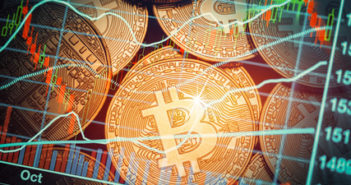The wonderful world of futures contracts has finally caught up with the exciting new world of cryptocurrencies. If you pardon the pun, for Bitcoin, the futures is now.
Futures contracts have been in use since the late 19th century. A futures contract is an agreement for the delivery of goods at a specified date in the future. The price is set at the beginning of the contract, and when the product is delivered, the original agreed price is paid. It is a method that was originally used for agriculture, but has spread to many other commodities. Today, commodities are generally traded as futures.
Understanding Futures Trading
For all futures, the agreed price is set at a price that both sides believe will be the actual value of the item when it is due to be delivered (settlement of the contract). However, between the time that the price is set and the delivery date, the price can and will change. The value of the item is likely to be different at the time of receipt than at the time it was originally agreed on for the delivery. Meaning, there is profit to be made in selling the item when it is received if the current price of the item is higher than the agreed upon price. But it is possible to also sell the contract itself, rather than the commodity, allowing for this potential profit to be realized before the settlement / receipt date. The person who sells the contract for a profit has never owned or taken hold of the commodity, but has made his profit by selling his commodity futures contract at a price higher than what was paid for the contract.
This differs from spot trading where delivery of the item would occur immediately, meaning that the item is now owned by the purchaser and any profits will occur by selling the actual commodity later for a profit.
A bitcoin futures contract would work on the same premise. A contract date and price is set for the “delivery” of a number of Bitcoin. If the value of the Bitcoin is expected to be higher at the time of the contract settlement, then there is a profit on the contract for the buyer. As a trader, you can trade on the value of another person’s contract. As long as the contract has not reached its settlement date, you can trade on the value at any time during the life of the contract.
To successfully trade contracts by fundamental trading principles, you need to have good understanding of the underlying value of the traded commodity. And a good understanding of what activities can change the value during the life of the contract. To give a practical analogy, for agricultural contracts like corn or grains, changes in weather patterns in key corn and grain growing areas can have an impact on the volume of grains and corn that can be available at the time of delivery. If a hurricane wipes out a significant volume of the corn before it is harvested, there will be a decrease in the available stock at the time of delivery, putting upward pressure on prices due to supply side shortages. This will impact the futures value, since the market will know that there will be less available corn in the future, pushing up the value of corn futures.
Should you trade bitcoin futures?
For trading bitcoin futures, there are obviously different fundamental aspects that will have an impact on the value of the bitcoin. There are several aspects that could impact the prices, like news surrounding the safety of bitcoins, a threat from another cryptocurrency on its market share, regulatory changes, potential bubble activity, and a variety of other fundamental aspects that the trader needs to understand before trading Bitcoin futures.
However, these issues are no different from trading spot bitcoin, and has the added advantage of not holding the actual bitcoin, short term trading, access to leverage and the like. It will also likely create more volume and less volatility in the bitcoin market. For anyone with experience trading Bitcoin, futures offers another way to make a profit on the world’s favorite cryptocurrency.
